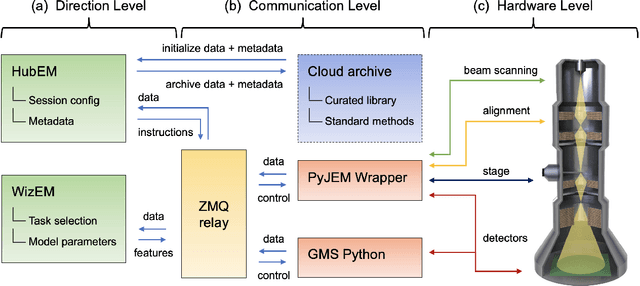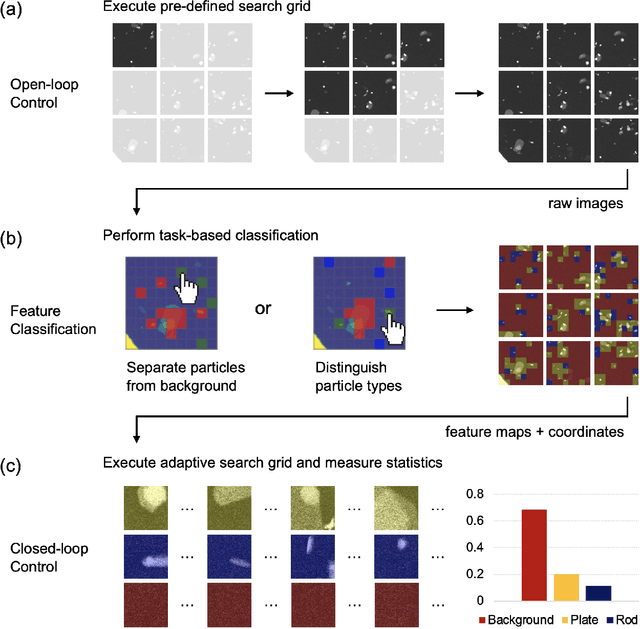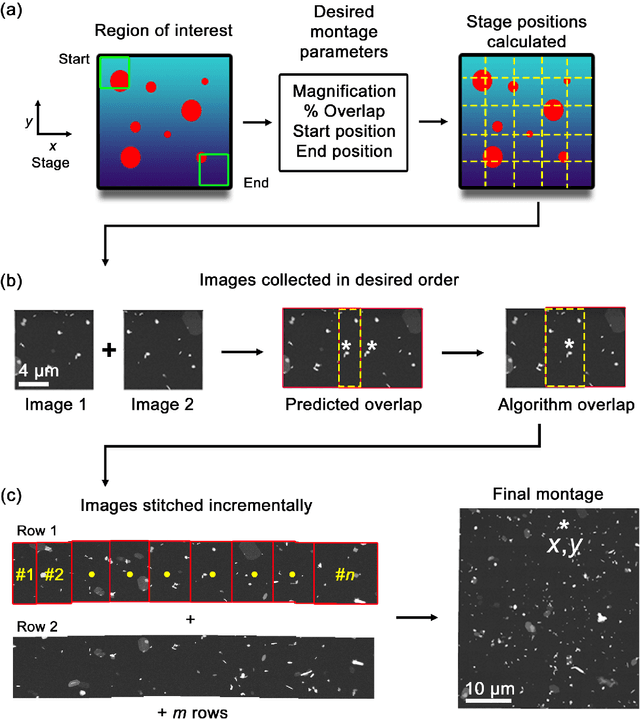Kevin R. Fiedler
Mind the Gap: Bridging the Divide Between AI Aspirations and the Reality of Autonomous Characterization
Feb 25, 2025Abstract:What does materials science look like in the "Age of Artificial Intelligence?" Each materials domain-synthesis, characterization, and modeling-has a different answer to this question, motivated by unique challenges and constraints. This work focuses on the tremendous potential of autonomous characterization within electron microscopy. We present our recent advancements in developing domain-aware, multimodal models for microscopy analysis capable of describing complex atomic systems. We then address the critical gap between the theoretical promise of autonomous microscopy and its current practical limitations, showcasing recent successes while highlighting the necessary developments to achieve robust, real-world autonomy.
An Automated Scanning Transmission Electron Microscope Guided by Sparse Data Analytics
Sep 30, 2021


Abstract:Artificial intelligence (AI) promises to reshape scientific inquiry and enable breakthrough discoveries in areas such as energy storage, quantum computing, and biomedicine. Scanning transmission electron microscopy (STEM), a cornerstone of the study of chemical and materials systems, stands to benefit greatly from AI-driven automation. However, present barriers to low-level instrument control, as well as generalizable and interpretable feature detection, make truly automated microscopy impractical. Here, we discuss the design of a closed-loop instrument control platform guided by emerging sparse data analytics. We demonstrate how a centralized controller, informed by machine learning combining limited $a$ $priori$ knowledge and task-based discrimination, can drive on-the-fly experimental decision-making. This platform unlocks practical, automated analysis of a variety of material features, enabling new high-throughput and statistical studies.
 Add to Chrome
Add to Chrome Add to Firefox
Add to Firefox Add to Edge
Add to Edge